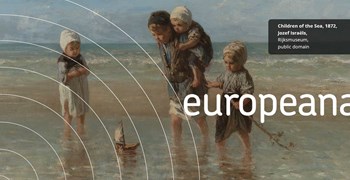Photography on a Silver Plate
In our latest virtual exhibition ‘Photography on a Silver Plate’ on Google Cultural Institute we show the faces, places and histories of the nineteenth century and look at the revolution made by photography in the field of visual mass communication. Its breakthrough: to satisfy our desire to record and make permanent the fleeting moments of our lives.
Below we give a sneak-peek of what to expect from this exhibition, highlighting a few of the amazing photographs. Rather explore the whole exhibition? Visit the Google Cultural Institute platform.
Silver, mercury and gold were the elements involved in the first truly successful photographic process: the daguerreotype. This technological miracle of the 19th century is increasingly being recognised as a unique and irreplaceable asset of our international cultural heritage. In 1839 the invention of the daguerreotype, in the midst of an increasingly industrialised civilisation, introduced a universal and continually evolving medium, through which our view of the world was irreversibly changed.
The pictures presented in the exhibition have been selected from the hundreds of European daguerreotypes that can be accessed and viewed on daguerreobase.org and Europeana.eu.
















